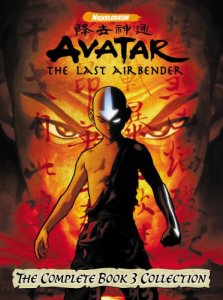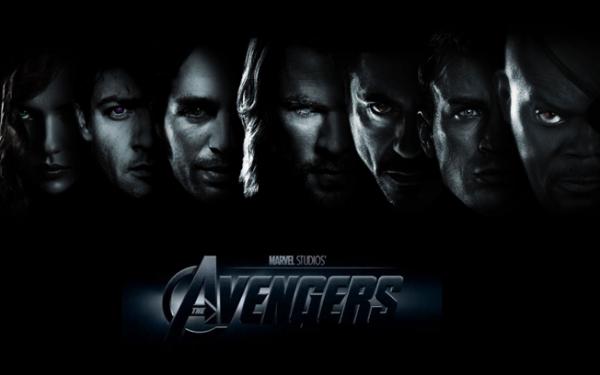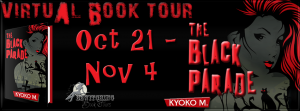
Catching Fire is blowing up the box office right now, and I couldn’t be happier about it. I saw it last week and that’s why I’ve decided to take a moment to examine our beloved Catnip.
My opinion of Miss Everdeen in general is that she is a bad ass. I actually quite like her, more than I’ve liked a lot of girls in modern day young adult fiction, post-apocalyptic or not. Suzanne Collins has done one of the rarest things in the YA genre in recent history—wrote a bestselling novel series with a well-developed female protagonist and the love story is actually a stealth parody and criticism of typical YA fare.
If you’re read the books, you know what I’m talking about. Katniss, to be frank, doesn’t give a shit about romantic love. She struggles with the very idea of it, and certainly its relevance to her life considering the fact that she’s in the middle of a war that she inadvertently caused. Don’t get her wrong: Katniss loves her family, and she loves Gale, and she unknowingly loves Peeta, but all of those types of love aren’t the one that we normally see in YA. And that, to me, is beyond refreshing. Katniss is forced into a love story and every inch of her rebels because it’s not what is important to her, and I think a lot of girls feel that way. Some of them just don’t have the burning desire to have a boyfriend, and some of them find the very idea of it exhausting. This is a voice that we haven’t heard in recent times with the rise of stupid, codependent women making millions, particularly Bella Swan and Ana Steele. Katniss is and always has been fiercely independent, and one of the main struggles for her is playing the role that society and the Capitol have forced upon her.
I love that Katniss is all rage and defiance instead of a bundle of insecurities who needs to be protected by some quaffed up stalker with a crush. I love that almost all of the main events in The Hunger Games series are a direct result of something she did. Katniss does what a main protagonist should be doing—creating, advancing, and fulfilling the story. Many stories in YA make the mistake of having the plot happen TO the protagonist instead of BECAUSE of the protagonist. My most prominent example is Clary Fray of The City of Bones series. I read the first novel and as I mentioned before, I’m not really a fan of her. She is largely deadweight from the beginning to end of the first novel, and while she might get better later on, it was so tiring that I found myself not wanting to see if she ever grows a pair of ovaries and takes charge. A lot of teen stories can learn from Katniss’ example because people tend to think that YA is all about hormones and paranormal romance and schmoopy love stories, but that isn’t true. There are some kick ass ladies hidden in these pages who need attention. That’s why I’m so thrilled that the Hunger Games is doing so well.
However, let me also say that another reason why I like Katniss is that she’s so screwed up in the head. I’ve come to calling her “Robotniss” in my head, which is why I get irritated when people call Jennifer Lawrence’s performance wooden. That’s not her acting, folks. That is actually Katniss Everdeen. She has the emotional range of a Bengal tiger that’s been slapped in the ass with a baseball bat. Most of the time, Katniss is brooding over the ruined District 12 or feeding her family or how’s she’s going to survive. She actively manipulates Peeta because it’s what she has to do in order to make it out alive. She can’t falter. She can’t stop and wonder about her true feelings for him, or for Gale. This is life or death. Ain’t nobody got time for dat.
My brother told me that from a guy’s standpoint, Katniss is a bit of a cocktease, especially when it comes to Gale, and while I sort of agree with that a bit, it’s also why I think it’s so important that people read the book and watch the movie. Katniss represents something more than what society really wants to think about. It’s not so much about her being a “tease” than it is being a girl who doesn’t want what people think she should want. She has bigger fish to fry, and the last thing on her mind is deciding if she needs a boy to spend the rest of her life with. People need to hear that. Our society still has ridiculous standards for girls, especially ones my age. By the tender age of thirty, you’re expected to have one of two things, if not both: a successful career or a family. If you don’t have one or the other, you’re considered a loser. That well and truly sucks. No one’s path takes that amount of time to get going, and no one can live up to expectations like that when you consider how different each woman is from one another. Like Katniss, maybe some of us don’t want a relationship. Maybe we’ve got more to worry about. And maybe, just maybe, that’s okay.
After all that women have been put through over the years, I’m beyond happy to see Katniss Everdeen up on that big screen kicking ass and taking names and breaking box office records. It is a statement to the world that you can’t make excuses any longer. Women are awesome. We can carry a story. DC has been whining that they can’t make a Wonder Woman movie because people won’t go see a movie with a female hero as the main character, and now we can take the box office records and shove it down their stupid throats. $161 million dollars opening weekend. Read it and weep, sexists and misogynists. Our XX chromosomes are worth all that money, and will continue to be for years to come, so you’d better get ready.
So thank you, Catnip, and thank you, Suzanne Collins, for being voices to a cause that we should be fighting and will continue to fight for decades to come. The Hunger Games novels are by no stretch perfect, but they are a message that needs to be heard. We’ve got a long fight ahead of us, but I get the feeling that the odds are in our favor this time.
-Kyoko




